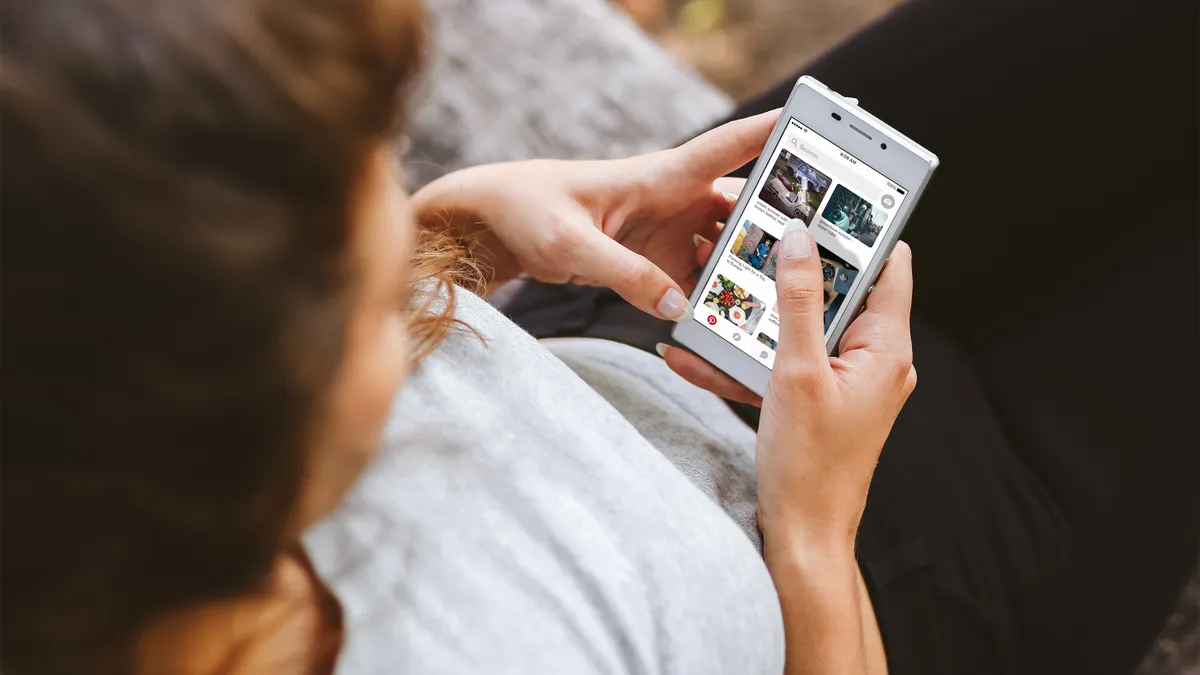Brief:
-
Pinterest announced it has joined brand-safety group Global Alliance for Responsible Media (GARM), and will work with advertisers, agencies, publishers and platforms to promote brand safety, per an announcement emailed to Mobile Marketer.
-
Pinterest highlighted its brand-safety features, such as letting advertisers use targeting controls to decide where ads appear in the Pinterest HomeFeed or Pinterest Search. Brands also can use negative keywords to prevent ads from showing up in search queries they don't consider suitable.
-
Pinterest also provides search term reports to show brands which queries triggered their ads. With that information, brands can refine their lists of negative keywords or notify their Pinterest account team of inappropriate search terms. The announcement comes as the photo-pinning site seeks to create a more positive environment for consumers and advertisers.
Insight:
Pinterest joining GARM, which was unveiled by the World Federation of Advertisers last year at the Cannes Lions Festival, comes as marketers grow increasingly worried about brand safety on social media and threaten to shift their dollars elsewhere if the space doesn't clean up shop. The concern is valid, as consumers are likely to form a bad impression of brands whose ads appear near objectionable or hateful content.
Eighty-seven percent of U.S. consumers said they would cut spending on products whose ads appeared near objectionable content, and 58% would stop buying them altogether, according to a survey by Trustworthy Accountability Group and the Brand Safety Institute. Like other social media companies, Pinterest is vulnerable to concerns about brand safety because of its dependence on user-generated content that must be monitored and vetted. It's a constant battle amid evidence that foreign governments sponsor ongoing misinformation campaigns on platforms to sow social strife or influence public opinion.
In the announcement, Pinterest touted recent actions to improve brand safety, including limiting search results for information about the COVID-19 pandemic to vetted sources like the World Health Organization. Pinterest also lets marketers prevent their ads from showing up in search results for terms like "coronavirus" and "pandemic" as part of its effort to provide a more positive environment for brands.
Pinterest similarly has banned political campaign ads and taken steps to stop showing any ads in any elections-related content. Users that search for the names of presidential and vice-presidential candidates, or for terms like "polling place" or "vote," don't see advertising in the results, according to the company.
Pinterest gives users online tools to report objectionable content by clicking on the ellipsis icon at the bottom right-hand corner of photos in the app. Pinterest removes unacceptable content and notifies the account holder by email about the action, along with a reminder of its community guidelines.
By signing on with GARM, Pinterest is among the social media companies that have stepped up efforts to promote brand safety during a volatile year. Social video app TikTok this month partnered with OpenSlate, a provider of content ratings for digital platforms, to offer a third-party verified brand safety solution to advertisers. Following an advertiser boycott in July to protest its policies on removing hate speech, Facebook pledged to take stronger action. Google's YouTube has also made increased efforts to curb objectionable content after companies, including P&G, boycotted the platform several years ago.
Amid this year's protests against racism, marketers have expressed growing alarm about hateful online content that appears on social media platforms. Marc Pritchard, chief brand officer of Procter & Gamble, last month demanded that social media platforms work harder to remove hate speech. During a virtual conference hosted by the Association of National Advertisers, he said, "social media is about 5% of P&G's marketing spending and 150% of our problems … we are tired of wasting time monitoring content."














